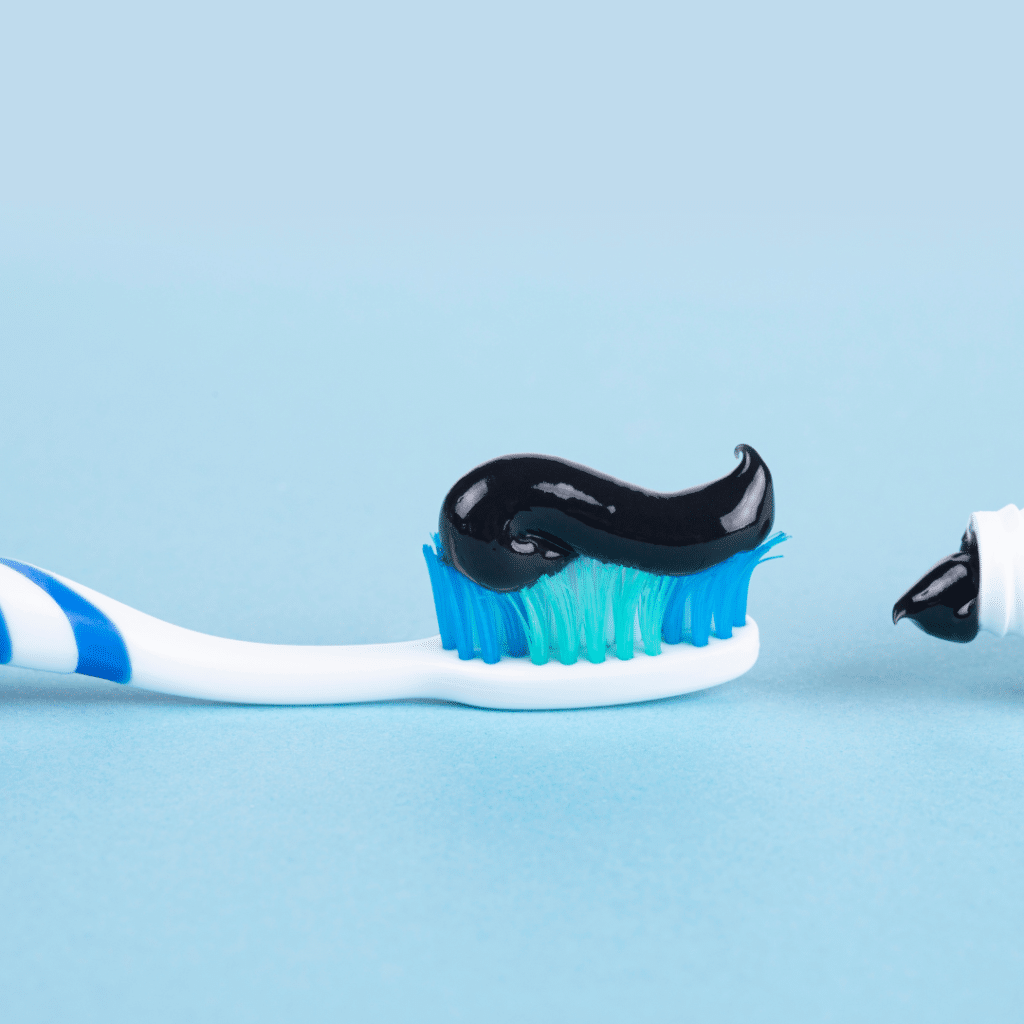Debunking the Charcoal Teeth Whitening Trend: Insights from a Dentist
As the owner of a dental practice with years of experience in dental care, I am often asked about the latest oral health trends. One trend that has gained popularity in recent years is the use of charcoal for teeth whitening. Charcoal teeth whitening products, such as charcoal toothpaste, powders, toothbrushes infused with the substance, and even activated charcoal capsules, are widely marketed as a natural and effective way to achieve a brighter smile.
However, as a dental professional, I am here to debunk the charcoal teeth whitening trend and provide you with accurate insights.
What is Charcoal?
Charcoal is a black, porous form of carbon that is obtained from organic materials, typically wood, peat, or coconut shells, through a process called pyrolysis or carbonization. During pyrolysis, the organic material is heated in the absence of air, which causes it to decompose and release volatile components, leaving behind a carbon-rich residue known as charcoal.
Charcoal has been used for various purposes for centuries, ranging from cooking and heating to industrial processes, water purification, and medicinal uses. It has a long history of use in traditional medicine and has recently gained popularity in various health and wellness products due to its perceived adsorptive properties.
Adsorption is the process by which charcoal attracts and holds onto other substances on its surface without chemically bonding with them. This property is believed to allow the charcoal to adsorb impurities, toxins, and other substances. This property has led to the belief that charcoal can also adsorb stains and whiten teeth.
What Oral Health Products Use Charcoal?
Charcoal has gained popularity as an ingredient in various oral health products due to the perceived adsorptive properties mentioned above. Some oral health products that may contain charcoal as an ingredient include:
Charcoal Toothpaste: Charcoal toothpaste is a type of toothpaste that contains activated charcoal as an ingredient. It is promoted for its purported ability to adsorb stains and impurities on the teeth, helping to whiten and brighten the teeth. Charcoal toothpaste may also contain other ingredients commonly found in regular toothpaste, such as fluoride for cavity protection, and may be available in different flavors and formulations.
Charcoal Toothbrushes: Charcoal-infused toothbrushes are toothbrushes that have charcoal added to the bristles or embedded in the brush head. These toothbrushes claim to help remove stains from the teeth and provide additional cleaning and whitening benefits.
Charcoal Mouthwash: Charcoal mouthwash is a type of mouthwash that contains activated charcoal as an ingredient. It is promoted as a rinse that can help adsorb impurities, neutralize bad breath, and freshen the mouth.
Charcoal Dental Floss: Charcoal dental floss is dental floss that is coated or infused with charcoal. It is marketed as a floss that can help remove plaque, debris, and stains from between the teeth, while also providing the potential benefits of charcoal’s adsorptive properties.
Charcoal Teeth Whitening Strips or Powders: There are also teeth whitening strips or powders that contain charcoal as an ingredient. These products are promoted for their supposed ability to remove stains and whiten teeth through the adsorption of impurities.
Risks of Using Charcoal on Teeth
There is a lack of scientific evidence to support the above claims, and the use of charcoal for teeth whitening can actually pose potential risks to oral health. I’ll go over a few of these risks below.
Charcoal Products are Abrasive
One of the main concerns with using charcoal for teeth whitening is its abrasive nature. Charcoal is a gritty substance that can be harsh on tooth enamel, which is the protective outer layer of the teeth. Brushing your teeth with charcoal toothpaste or powder can cause enamel erosion, leading to increased tooth sensitivity, weakened teeth, and even permanent damage to the tooth structure. This can also expose the dentin, the underlying layer of the teeth, which is naturally yellowish in color and can make your teeth appear darker.
Charcoal Can Interfere With Medications
When charcoal is consumed orally, it can adsorb medications that are present in the stomach or intestines, preventing their absorption into the bloodstream. This can result in reduced effectiveness of the medications, as they may not be absorbed and utilized by the body as intended. Medications that are commonly adsorbed by activated charcoal include certain drugs used for pain relief, seizure control, and heart conditions, as well as some vitamins and minerals. This is a concern when using products prone to accidental swallowing, like charcoal mouthwash.
Not Dentist Approved or Regulated
Charcoal teeth whitening products may not be approved by dental associations or regulatory bodies for safety and efficacy. These products are often not tested or regulated by dental professionals, and their long-term effects on oral health are unknown. Some charcoal products may also contain other potentially harmful ingredients, such as abrasives, acids, or flavorings, that can further damage tooth enamel and irritate gums.
Charcoal Can Cause Stains
Charcoal can give a false impression of a whitened smile. The dark color of charcoal may initially make your teeth look whiter, but this effect is temporary and can fade quickly. In fact, using charcoal on a regular basis may cause your teeth to become stained or discolored over time, as the abrasive particles can accumulate on the tooth surface and attract stains from food, beverages, and tobacco.
Best Alternatives to Charcoal for Teeth Whitening
So, what is the best way to whiten your teeth safely and effectively? As a dentist, I recommend seeking professional dental care for teeth whitening.
Dentists are trained and qualified to provide safe and reliable teeth whitening treatments that are customized to your individual needs.
Professional teeth whitening options, such as in-office teeth whitening or take-home whitening kits prescribed by your dentist, use controlled amounts of whitening agents that are safe for your teeth and gums, and can provide long-lasting results without causing damage to your oral health.
Conclusion About Using Charcoal to Whiten Teeth
While charcoal teeth whitening may seem like a natural and trendy solution for a brighter smile, more research is needed to determine the true efficacy and safety of charcoal in oral health products.
Additionally, as mentioned earlier, charcoal has the potential to interact with medications and other substances, so it’s essential to consult with your dentist or healthcare provider before using any charcoal-based oral health products, especially if you are pregnant, breastfeeding, or have any underlying health conditions. Your healthcare provider can provide you with personalized guidance and recommendations based on your individual oral health needs.
Consult with a dental professional for safe and effective teeth whitening options. Your oral health and beautiful smile deserve the best care from qualified dental professionals.




Recent Comments